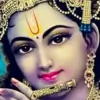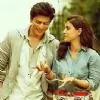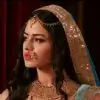Sayanee, Indra is only the most praised God in Vedas. But all Vedas have accepted the supremacy of Vishnu, though he is not frequently mentioned. It is clearly said that Indra is praised only due to circumstances where as Vishnu is prayed for what he is. Vishnu is said to be the oldest and greatest concept of Hinduism and the paradox of all paradoxes. He is said to be what incomprehensible and transcendental is, beyond the limits of the understanding of a human brain, making him to be presented today in a simple form we see. This form of Vishnu can compared with the waves of an ocean; where as actual ocean is deep beyond the waves and the ocean itself can exist without waves. Rig Veda mentions Vishnu a total 93 times. And there is also a minor deity Vishnu who is none other than sun god Suryanarayana, who is also a minor form of Vishnu only. Don't get confused there. The Rig Veda itself admits Vishnu's factual superiority to Indra and all others Gods in several places.
Rig Veda.10.113.2: - Vishnu is glorified because of who and what he intrinsically is. Indra, on the other hand, is only glorious circumstantially.
Rig Veda.1.156.2:- Vishnu is the most ancient of all, yet also the most recent. Nothing and no one creates Vishnu, yet Vishnu creates everyone and everything.
Rig Veda1.22.20:- om tat Vishno: paramam padam sadaa pashyanti sooraya: ... This roughly means 'which all gods seek is the supreme pada (abode) of Vishnu.'. This verse clears any doubt on Vishnu's supremacy. Possibly there is no other God in Vedas who is described using 'Paramam Padam'.
Some of Vishnu's incarnations (if my memory is good, upto Vamana) are mentioned in (only gist in one or two lines, no long stories) in Vedas. The existance of Shiva in Vedas is still a matter of debate. Of course there is Rudra, but many aspects of Shiva are not found in Rudra. It is clear that they both are similar, but have differences too. I've no intention to make this post lengthy describing all those. But there are many scholars who identify Rudra as a different God from Shiva. And they've their set of reasons which is again only a never ending debate. Let us anyhow accept Shiva is also there, but at the same time not forget that Shiva also represents minor deities like Mitra, Varuna etc in Vedas...
Aryan Invasion theory seems to be outdated now a days. Though still there are a good number of scholars following it, number of scholars rejecting it is increasing day by day. This is again a vast topic of discussion. Yet, I'll try to remember the important points.
1. Word Aryan is used only as an adjective, never as a noun in Sanskrit. So there itself starts the contradiction.
2. Aryan invasion theory states that the Aryans attacked the Indus valley people and foisted their tradition and beliefs on them. But recent studies in Indus Valley Civilization sites reveal no sign of any invasions/war happened there. Hence it is proved that there was no invasion.
3. According to Aryan Invasion theory, the Indus Valley Civilization perished around 1500BC whereas recent studies indicate it had already been perished at least 1000 before to the above period.
Also there is a parallel theory of drying up of Saraswati River associated with the end of Indus Valley Civilization. This river as far as 15 km wide (as found by scientists, not me) is the mightiest and holiest of all rivers according to all Vedas (they don't care Ganga as much as we do) is said to have started drying up around 3000BC and dried up by 1700BC. You'll get enough online articles about this river. Today the latest debate is whether the river had a glacial origin or not. I personally don't support the theory of Aryan Invasion. I believe the Saraswati one more.
Sorry for this lengthy comment and also for any of typos or other mistakes happened while quoting. Quotations and explanations are there, mistakes if any are only mine, which happened while typing using phone!😃
Edit- on a side note, the Vedic culture and tradition is nowhere lost & it is still under practise among Nampoothiri Brahmins of Kerala. They still do Atiratra & Somayaga (the holiest of all yajnas in Vedas, considered as the oldest traditional practise existing today, not in practise anywhere in India for last 3000 years), still conduct Anyonyam (the yearly examination for Vedic students, being conducted from past 4000 years without any break)...
Also I did not mean to contradict or disprove your views. I respect them. They're also valid in their own ways. I was just only showing the other existing side of the coin!
Edited by -Jamy- - 11 years ago

































